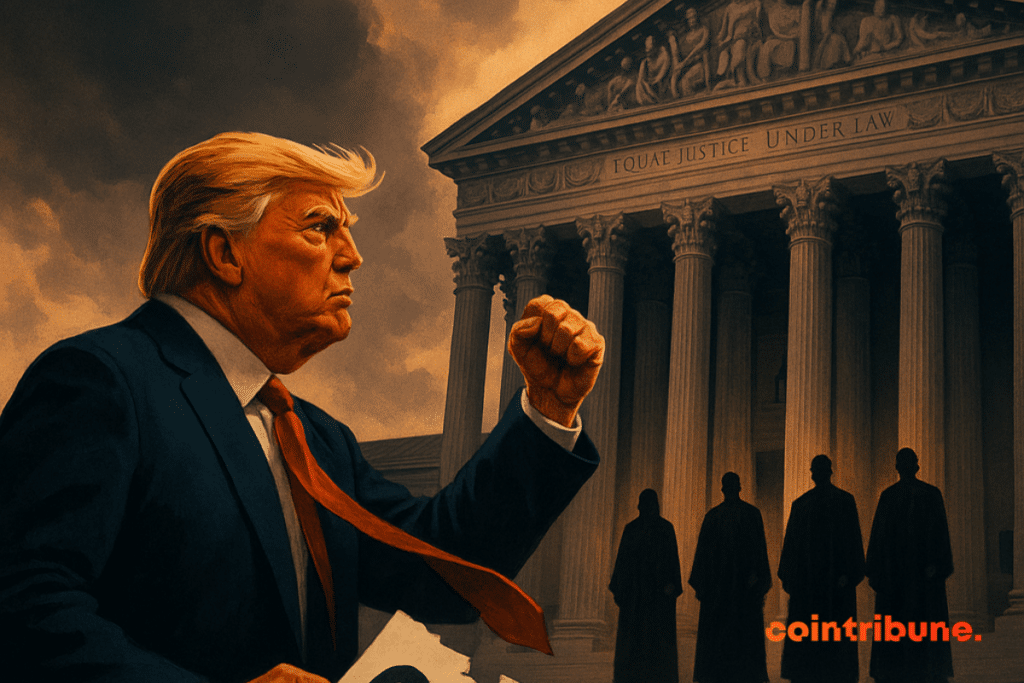American Justice Declares Donald Trump’s Tariffs Illegal - Market Implications Ahead
Federal Court Strikes Down Trump Tariffs in Landmark Ruling
Trade Policy Upended
The US Court of International Trade just delivered a seismic blow to former President Trump's signature trade policy. Judges ruled the controversial tariffs violated constitutional limits on presidential authority—sending shockwaves through global markets.
Market Fallout Immediate
Futures surged on the news as traders priced in cheaper import costs. Supply chain stocks ripped higher while domestic manufacturers tanked. The ruling effectively unwinds years of protectionist policy overnight.
Legal Precedent Set
This decision creates a brutal precedent that'll handcuff future administrations from implementing aggressive trade measures without congressional approval. The judiciary just reclaimed significant oversight power over executive trade actions.
Global Implications
Watch for immediate retaliatory tariff reductions from trading partners. China and EU nations already signaling reciprocal moves. Global trade volumes poised for their biggest spike since pre-2020 levels.
Of course, Wall Street will find a way to package this volatility into another leveraged ETF—because nothing says 'stable markets' like 3x inverse tariff derivatives.

In brief
- U.S. courts have ruled Donald Trump’s tariffs illegal, undermining his protectionist strategy.
- Trump denounces the decision as “politicized” and vows to defend his surcharges before the Supreme Court he helped shape.
- Amid economic uncertainty and diplomatic tensions, the future of his trade war now hinges on the judges’ final verdict.
Presidential power questioned
At the heart of the case, a crucial question: does the president have the right to unilaterally impose trade taxes? For the judges, the answer is clear.
The Constitution reserves this power for Congress, not the head of state. Yet, the surtaxes decided by Donald Trump were applied almost universally and without time limit, far exceeding his prerogatives.
The international trade tribunal had already pointed out this abuse of power. The appellate court confirms this diagnosis, creating a political and diplomatic shock wave. Because behind the legal showdown hides an aggressive protectionist strategy which had forced several partners, including the European Union, to review their exchanges with Washington.
Donald Trump counterattacks and bets on the Supreme Court
True to his offensive style, Donald Trump did not hesitate to react. On his network Truth Social, he denounced a “politicized” decision and vowed to maintain his tariffs “to save the country.”
According to him, their removal WOULD be a “total disaster” for the American economy, depriving the state of billions in revenue and weakening its leverage against trade partners.
He also accused his Democratic opponents of orchestrating a judicial campaign to harm his political comeback. For Trump, these tariffs symbolize not only an economic strategy, but also an act of national sovereignty. This strong discourse aims to mobilize his electoral base, already sensitive to protectionist arguments and economic patriotism.
The battle now moves to the Supreme Court. Confident, Trump hopes that the institution, where he appointed several conservative judges, will rule in his favor. But meanwhile, uncertainty looms. The economic sectors fear international reprisals if the taxes were to be canceled, while his political opponents denounce a trade policy judged “failed” and costly for Americans.
Maximize your Cointribune experience with our "Read to Earn" program! For every article you read, earn points and access exclusive rewards. Sign up now and start earning benefits.

